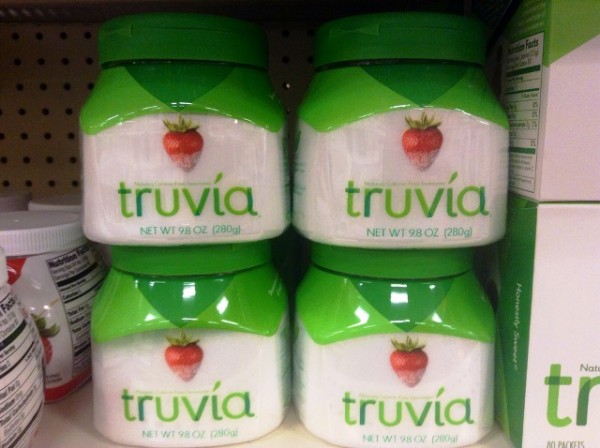Ingredient in Artificial Sweeteners Helps Kill Fruits Flies: Study

Ingredient in food sweeteners can be used as insecticides, according to a study.
Experts from the Drexel University discovered 'erythritol' a compound present in Truvia, a popular artificial sweetener, is highly toxic to drosophila melanogaster a fruit fly species.
Many fruits contain small traces of Erythritol and intake of the compound even in high doses will not have any adverse effects on humans. In 2001, after confirming its safety and efficacy, the U.S. Food and Drug Administration gave approval to be sold as food additive.
The current study led by Sean O' Donnell was inspired by his son's a sixth-grade science project on effects of sugar additives on fruit flies. O' Donnell and his son brought many types of sugar substitutes and tested them on lab grown flies for six days. It was observed that all flies died after being exposed to Truvia sweeteners. These findings encouraged researchers to carry out investigation with a variety of non-nutritive sweeteners, table sugar and corn syrup.
It was noted that flies exposed to Truvia lived only for 5.8 days on average compared to 38.6 and 50.6 days in flies that were given other sweeteners. Fruit flies are specifically attracted to erythritol even when there are other foods around and they develop impairments in movements and motor functions before dying.
"Indeed what we found is that the main component of Truvia®, the sugar erythritol, appears to have pretty potent insecticidal activity in our flies," said Daniel Marenda, study author and an assistant professor of biology in Drexel's College of Arts and Sciences in a news release.
In addition, the authors noticed extracts of Stevia plant that are added to both commercial sweeteners Truvia and Purevia had no reactions on flies. The results of the experiment highlight the large scale use of erythritol as a safe option for keeping crops free from flies.
"We are not going to see the planet sprayed with erythritol and the chances for widespread crop application are slim," O'Donnell said. "But on a small scale, in places where insects will come to bait, consume it and die, this could be huge."
More information is available online in the journal PLoS ONE.
Jun 07, 2014 08:57 AM EDT





